- Home
- Anne Bishop
Wild Country Page 3
Wild Country Read online
Page 3
Parlan didn’t look over at the other men, but he sensed a change in their intentions. There was no one else in the executive car. From the perfume scents in the washroom at the back of the car, he knew there had been one or more women with the men before the last stop. Since the women weren’t in the executive car now, they’d fulfilled their purpose and were no longer wanted.
He wondered briefly if they’d been left at the last station or had been tossed off the train. He had a feeling at least one of those men would find tossing a woman off a moving train amusing. Or expedient. And he had a strong feeling that they were considering doing the same to him after relieving him of his wallet and a few of his teeth.
Not that they would have a chance to relieve him of anything.
One of the men shifted on the padded bench seat. Parlan ignored him; didn’t reach for the derringer or the knife he carried because at the same moment the man stood up, the door of the executive car opened and two men walked in from the regular passenger car.
The first man didn’t look at the four men, but Parlan knew he saw all of them. Those men might be thugs, but this man was a stone-cold killer who truly enjoyed his work.
The man nodded to Parlan before taking one of the leather seats behind Parlan’s bench seat. He chose the aisle seat, where he could see the other men, who no longer found Parlan interesting.
The second man stopped at Parlan’s table. “Not your usual game.”
Parlan looked up and smiled. “Hello, Henry. Have a seat.” After Henry Hollis settled in the bench seat opposite him, he gathered the cards and shuffled. “I wasn’t in the mood for my usual game. What about you?”
Henry took out his wallet and laid a hundred-dollar bill on the table. “A farewell game.”
That was all Hollis was going to wager? Parlan looked at the bill and wondered if Henry had fallen on hard times. “Farewell? You going somewhere?”
“I’m giving up the life.”
He looked at Henry in surprise. “What’s this?”
“It’s time to quit.”
Parlan was aware that the four men had noticed the bill Henry had put on the table and sensed they were wondering how much Henry might be carrying. Then they looked at Judd McCall sitting quietly behind Parlan.
As long as those men were the first ones off the train, Henry would be safe. No one but a fool tangled with Judd.
“Why quit?” Parlan asked. He dealt two hands of blackjack. Henry hit and busted. Parlan deliberately took a card that also put him over twenty-one.
“Have you tried to do much traveling in the past month?” Henry glanced at the cards. “Stay.”
Parlan took a card and won that hand.
“The Northeast and Southeast didn’t get hit as hard as other places, but the bigger cities in those places surely did,” Henry continued. “I’ve heard at least one-third of Toland is nothing but rubble and corpses. A couple of the big cities in the Southeast aren’t much better. The people who used to look for a big game aren’t looking to play cards these days. They’re looking to buy food and repair their homes. They’re looking to restore their businesses. They’re hiding in their houses when the sun goes down.” He sighed. “The travel bans are strictly enforced, at least for the trains. And anyone foolish enough to drive at night carries a loaded gun on the seat beside him, figuring that if he’s caught, a bullet in the brain will be more merciful than whatever will be done to him by what’s out there in the dark.”
“That’s what you’ve heard?” Parlan dealt a couple more hands, not asking if Henry wanted to hit or stay. Didn’t matter. It was just something to do with his hands.
“I was in a Southeast city playing in a high-stakes game when the news reports showed all the dead shifters that were killed by followers of the Humans First and Last movement. And I was still in that city when the Others retaliated.” Henry’s voice remained calm, conversational, but when he looked at Parlan there was fear in his eyes. “Traveling from town to town for games? Not the way I want to live anymore—mostly because I realized that I wanted to live.”
“Then what are you going to do?”
Henry laughed quietly. “My sister and her husband live in a small town on the western side of Lake Honon. They own an old-fashioned general store—the kind of place where you can buy basic groceries and a bottle of wine or a six-pack of beer along with a coloring book or a toy for the kids, and the wife can look through a box of patterns to make a new dress. They even have bolts of cloth and needles and thread and whatnot for sewing. A year ago they wanted to expand but couldn’t get a loan from a bank. So I put in the money and became a silent partner.” He smiled. “I figured I was tossing money out the window, but she’s my sister. Anyway, they got the building renovations done and purchased the merchandise they wanted to add. And now? They and their old-fashioned store survived when the Others ripped through all the human towns. Now they’re an important fixture in that part of their town and need help running the place.”
Parlan didn’t scoff, but it took effort to keep his voice politely interested. “You’re going to give up being a gambler to become a grocer?”
Henry nodded. “I’d made the decision before all of . . . this . . . happened. I’m glad I did. I had my sister’s reply in my pocket when I bought my ticket, showing that I was returning to family and a job. Wouldn’t have been able to cross back into the Northeast without that letter. The old life is gone, Parlan. The days of being able to cross the continent on a whim aren’t coming back anytime soon, if ever.”
It rippled through him, that same feeling that told him a game was going sour and it was time to walk away from the table.
Henry Hollis was right. It would take years for Toland to recover, if it ever came back to what it had been. From the things he’d heard, Hubb NE was a quagmire of displaced people pouring into that city, looking for food and shelter. Desperate people and professional gamblers did not mix. Lakeside? Something about Lakeside and the other towns in that area had always made him uneasy. Not because of the Others. He’d always successfully avoided contact with them. But he’d had the feeling there were other kinds of hunters in Lakeside who couldn’t be discouraged or bribed—and just might twig to why the Blackstones were such successful gamblers and swindlers.
That left Shikago. And once he’d worn out his welcome there? Then what?
“Where do you get off?” Parlan asked.
“Shikago is the closest station to the town where my sister lives. From there I’ll take a boat.” Henry laughed softly. “I’m told it’s a common way to reach the towns along the lakes. You just have to get used to some of the travelers being a bit . . . furry.”
Parlan shuddered. He didn’t want to think about having to deal with the Others. “Well, Henry, I wish you luck.”
We need to get out of this car. When he felt this strongly that a game was going to go wrong, he didn’t ignore the feelings that came from being an Intuit.
Parlan gathered the cards and put the deck in his pocket. He nudged the hundred-dollar bill toward Henry. “You keep it.” He smiled. “We’ll be at the next station in a few minutes. You can buy me lunch.”
He saw Henry open his mouth, ready to remind Parlan that the executive car provided food as part of the cost of the ticket. Then Henry moved his eyes to look toward the four men at the other table. Parlan gave the tiniest nod.
Thugs dressed in suits were still thugs.
When the train pulled into the station, Parlan rose swiftly and headed toward the door with Henry right behind him. He didn’t look back, but he knew Judd had also moved, and whatever was said—or done—would encourage the men not to follow.
“Come with me,” Parlan said, going down the steps so fast he almost slipped. They were on the wrong side of the train to be seen by the four men or anyone at the station, but he still crouched low as he hurried to his private car. Once they were insid
e, he lifted the side of one of the window blinds just enough to see Judd walk off the train and go into the station.
He didn’t see the four men who had been in the executive car.
Just before the train began to pull out of the station, Parlan heard a quiet knock on the door of his private car before Judd walked in, holding a paper bag.
“The best they had,” Judd said, pulling sandwiches and bottles of beer out of the bag. He took a sandwich and a bottle of beer, then retreated to the chair farthest from the table where Parlan and Henry sat.
“I always admired how you knew when to avoid a game,” Henry said.
Parlan got up and locked the door before returning to the table and unwrapping his sandwich. “I’m just good at reading other people’s tells.”
“Your daughter was good at reading those fortune-telling cards.”
That wasn’t the bitch’s only skill, but reading those cards was an ability seen at every harvest fair and was, therefore, nothing extraordinary, nothing that would call undo attention to the family.
“Sweet girl,” Henry continued. “Is she still traveling with you?”
“No, she hasn’t traveled with us for a while now,” he replied quietly.
“Too bad. I could have asked her to read the cards and tell me my future.”
Parlan stared at Henry with cold eyes. “She lost the knack for seeing the future.”
“Sorry,” Henry said. “I didn’t realize . . .”
He waved away the apology. “All families have their troubles. We’ll work it out.” He asked Henry about the town where the sister and brother-in-law lived and deflected any more talk about his own family—especially any talk about his ungrateful daughter.
CHAPTER 5
Firesday, Sumor 27
Already out of sorts because Prairie Gold’s post office was still closed, Abigail Burch returned to her little shop and felt a dissonance so severe she began to shake.
Where had that come from? She had to find it before it unraveled the protections that had kept her safe for the past three years.
She approached the bison-scented jar candles on the display table. What had sounded like a good idea, using free bison fat instead of buying tallow from Floyd Tanner, had turned out to be a spectacular failure. Even the Wolves didn’t want to use the darn candles and they liked the smell of bison! And now that nothing could be wasted, she had to keep trying to unload the things on Prairie Gold citizens who took pity on her. At least there weren’t that many candles to sell.
A chill ran through her. There had been a dozen jars on the table when she’d left. Now there were six more.
Abigail stepped away from the table. This shouldn’t be happening. Couldn’t be happening. Nothing she’d done when she’d gone through the steps to turn bison fat into candles could account for this dissonance. Except . . .
She hadn’t counted the number of jars. She’d thought she’d made more than a dozen, but when she came back from a lunch break and didn’t find any more, she figured she’d been mistaken. Now six more candles were on the display table and they . . .
Damn you, Kelley. What have you done?
It was possible that Kelley had found the other candles stashed in the workroom they shared and put them out on the table before going to his meeting with Jesse Walker. It was possible he hadn’t noticed anything wrong with them.
Kelley was pretty clueless about a lot of things, taking everything and everyone at face value. How else could she have played him so well for the past three years?
She’d needed a patsy to help her get farther away from her father and the plans he’d made for her, and she had found the perfect mark. When Kelley had found her drunk in an alleyway and had paid for a room at an inn and then stayed with her through the night, listening to her tearful story about the abusive father she had run from when she was seventeen, and how she’d been on the run for the past two years, she knew she had him. He wanted to help a damsel in distress, was ready to fall in love with a sweet, simple girl who just wanted a happy life with him.
She was many things. Simple and sweet weren’t among them, but it was a persona she had perfected for her part of the cons she had played with her uncle. At fairs or outdoor markets, they would have a booth where he would swap genuine stones and replace them with glass while doing a minor repair on a piece while she distracted the mark with her sweet patter about lucky stones and how she could choose just the right one for that person. And she could choose exactly the right stone for a person. That was her particular ability. But she could, and usually did, choose a stone that created a dissonance that would bring that person just enough bad luck when they gave in to an impulse and sat down for a game of cards with her father, whose persona was a frontier gambler.
Finding out that Kelley was a goldsmith and worked around gemstones was an unexpected and unpleasant hitch in her plans since she needed to avoid any stones that might dilute the energy of the stones she kept with her to deflect bad luck and create prosperity, but when he said he loved her and wanted to get married, she’d agreed—with some conditions.
They had moved three times in the three years they were married, finally settling in Prairie Gold last summer. She’d worried about living in an Intuit town, but everyone bought into her persona because Kelley had bought into it. Sometimes she was so bored with Kelley and this life she wanted to scream, but her father would never come to a small Intuit town in the middle of nowhere, and that meant she was safe from him—and safe from the other one. So she wore the old-fashioned dresses and read tarot cards and made candles and soaps that her neighbors bought out of kindness—and avoided getting close to the stones Kelley kept in his half of their shared workroom.
But now there were these candles, this dissonance.
The door to her little shop opened.
Abigail forced herself to smile at Rachel Wolfgard. “Good morning, Rachel.”
“Good morning.” Rachel eased into the shop, each cautious step bringing her closer to the table with the defective candles. “Jesse is having a meeting at the store. She told me to take a break and visit a store I haven’t seen yet. I have not been in your store. You sell candles and soap. The terra indigene use those things when we are in human form.” She reached for one of the jar candles.
“No!” Abigail shouted, certain everything would be ruined if those candles left the shop.
Rachel leaped away, startled. “I wasn’t going to steal. I have money—wages—to buy human things.”
As soon as Rachel moved away from the display, Abigail felt she could breathe again. She raised one hand in a placating gesture. “I knew you weren’t going to just take it. But those candles are defective. They shouldn’t have been put out for anyone to buy. I can show you other candles.”
Rachel backed toward the door. “No. I don’t need one.”
Shelley Bookman, the town’s librarian, walked in. Rachel turned and fled, dashing into the street. Shouts and the squeal of brakes.
“Gods!” Shelley said, standing in the doorway. “Phil Mailer almost hit her. Jesse should talk to her about the proper way to cross the street.”
If she’d taken one of the candles, Phil wouldn’t have stopped in time.
Shelley closed the door and walked over to the display table.
Abigail found it hard to breathe. A dissonance in someone else’s life wouldn’t have produced this effect. This only happened when a dissonance threatened to bring something dark into her life.
“You still have some of those bison candles?” Shelley said the words with the same forced enthusiasm as someone being fed marginally edible leftovers for the third night in a row.
“Don’t!” Abigail shouted when Shelley picked up one of the jars. She grabbed the jar and threw it on the floor with enough force to break the thick glass. “You can’t have that one. It’s not right for you! It’s not r
ight!” She grabbed another candle and smashed it on the floor. “They’re not right!”
The third jar didn’t break, so she went into her workroom, rummaged through her box of tools, and returned to the display table with a hammer. Air burned her lungs as she picked up each jar and set it on the floor. Then she swung the hammer hard enough to break the jars. Swung the hammer over and over and over.
Had to stop the dissonance, had to protect herself. Had to . . .
The hammer mashed through the candle, revealing something inside besides the wick. Using the hem of her dress, Abigail dug it out. A tumbled stone no bigger than her thumbnail. Quartz.
Heedless of the glass, she mashed the other broken candles and found more tumbled stones. Agate. Jet. Carnelian. Hematite. Turquoise. They could have been good stones for someone else, but they were bad stones to be around her.
“Gods above and below, Abby.” Kelley stood in the doorway that connected his shop with hers, staring at her. “What are you doing?”
She twisted to face him, felt a shard of glass slice her knee. But she didn’t feel pain. Not from the glass. She felt rage at this boring fool who had torn a hole in her defenses.
“How could you do this? How could you?”
“I thought . . . Just something extra. A little surprise when someone burned the candle. You didn’t have to touch the stones. You dislike my work so much, I’m surprised you even realized there were a few tumbled stones missing from the bowl in my shop.”
I knew they were in the candles. I could feel them.
Kelley hesitated, then walked over to her. He took the hammer and helped her to her feet.
“You’re bleeding.” He sounded sad—and there was something else in his voice she didn’t recognize. Something she didn’t like.
“I’ll help Abigail clean those cuts,” Jesse said as she stepped into the shop. “You clean up the glass.”

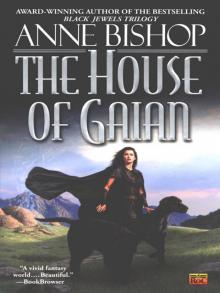 The House of Gaian
The House of Gaian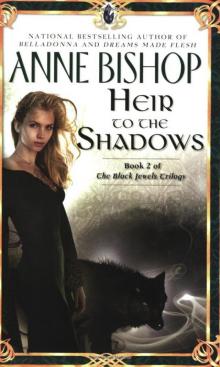 Heir to the Shadows
Heir to the Shadows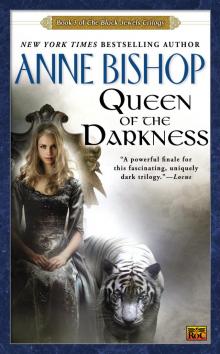 Queen of the Darkness
Queen of the Darkness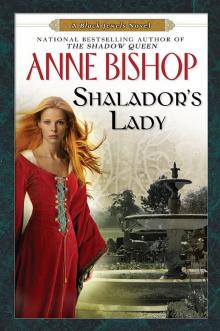 Shaladors Lady
Shaladors Lady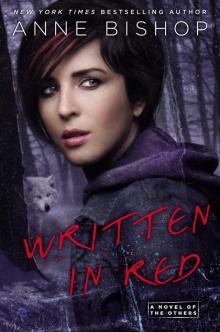 Written in Red
Written in Red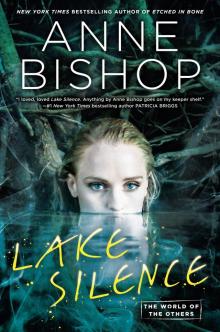 Lake Silence
Lake Silence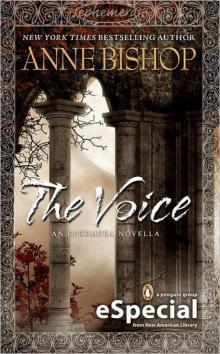 The Voice
The Voice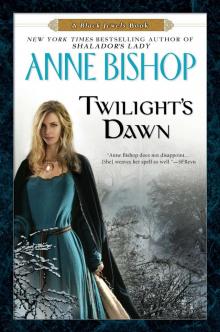 Twilights Dawn
Twilights Dawn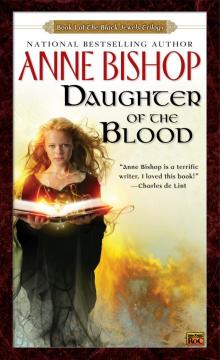 Daughter of the Blood
Daughter of the Blood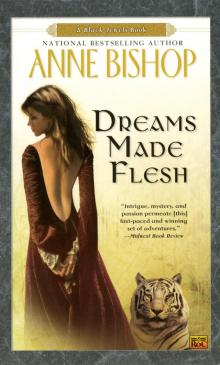 Dreams Made Flesh
Dreams Made Flesh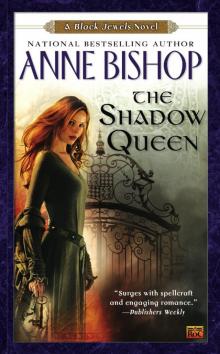 The Shadow Queen
The Shadow Queen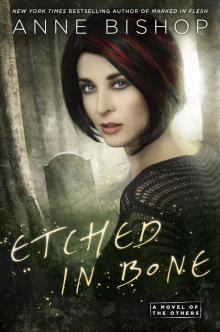 Etched in Bone
Etched in Bone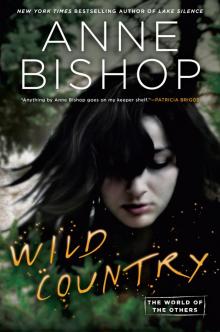 Wild Country
Wild Country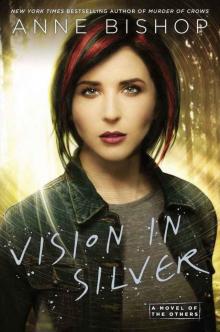 Vision in Silver
Vision in Silver Sebastian
Sebastian Shadows and Light
Shadows and Light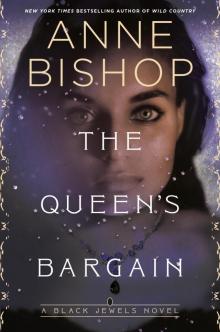 The Queen's Bargain
The Queen's Bargain Bridge of Dreams
Bridge of Dreams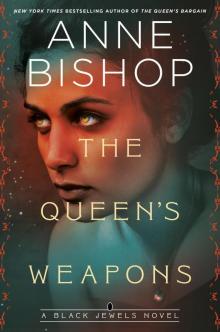 The Queen's Weapons
The Queen's Weapons Pillars of the World
Pillars of the World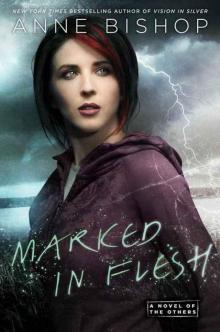 Marked in Flesh
Marked in Flesh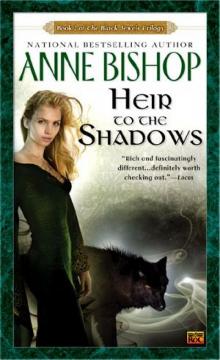 Heir to the Shadows dj-2
Heir to the Shadows dj-2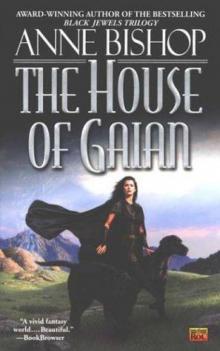 The House of Gaian ta-3
The House of Gaian ta-3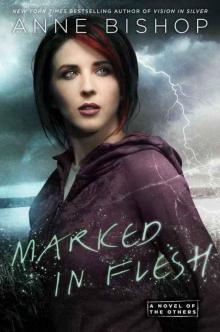 Marked In Flesh (The Others #4)
Marked In Flesh (The Others #4)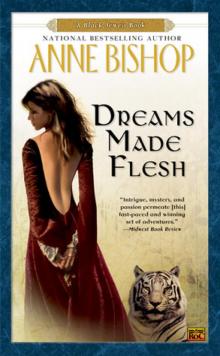 Dreams Made Flesh bj-5
Dreams Made Flesh bj-5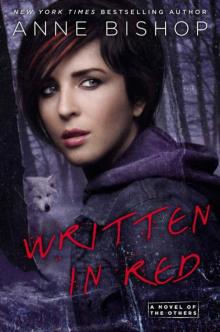 Written In Red: A Novel of the Others
Written In Red: A Novel of the Others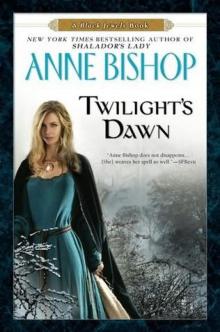 Twilight's Dawn dj-9
Twilight's Dawn dj-9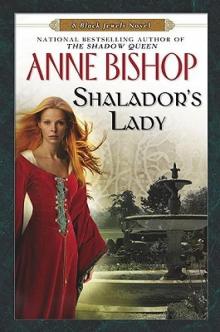 Shalador's Lady bj-8
Shalador's Lady bj-8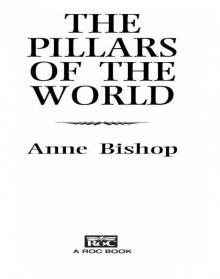 The Pillars of the World
The Pillars of the World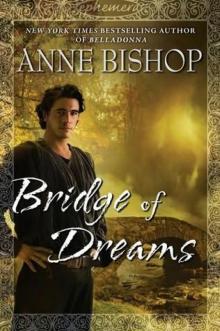 Bridge of Dreams e-3
Bridge of Dreams e-3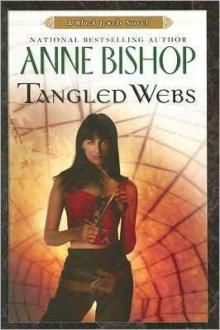 Tangled Webs bj-6
Tangled Webs bj-6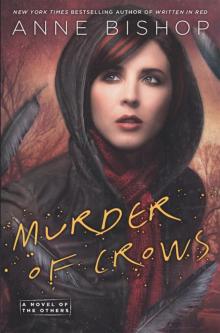 Murder of Crows: A Novel of the Others
Murder of Crows: A Novel of the Others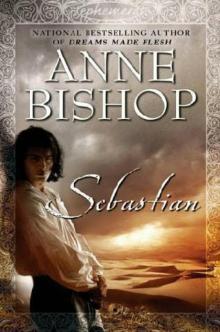 Sebastian e-1
Sebastian e-1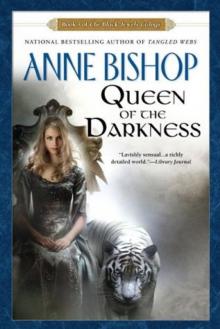 Queen of the Darkness bj-3
Queen of the Darkness bj-3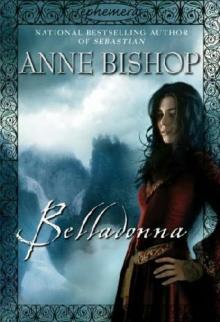 Belladonna e-2
Belladonna e-2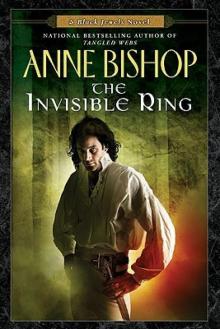 The Invisible Ring bj-4
The Invisible Ring bj-4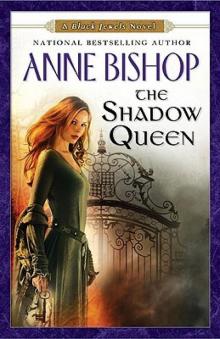 The Shadow Queen bj-7
The Shadow Queen bj-7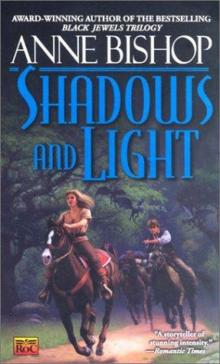 Shadows and Light ta-2
Shadows and Light ta-2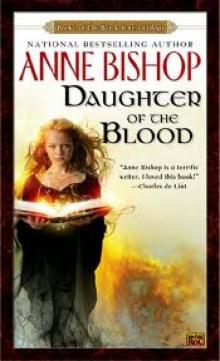 Daughter of the Blood bj-1
Daughter of the Blood bj-1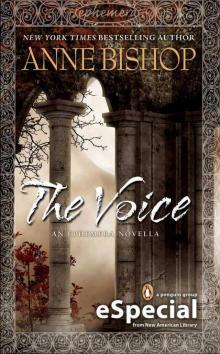 The Voice: An Ephemera Novella(An eSpecial from Roc)
The Voice: An Ephemera Novella(An eSpecial from Roc)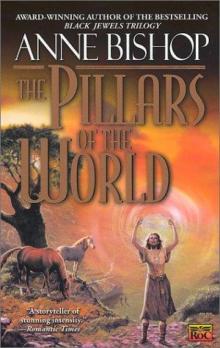 The Pillars of the World ta-1
The Pillars of the World ta-1